Are you facing a broken lease penalty and unsure how to approach your landlord about it? Navigating the complexities of lease agreements can be daunting, especially when unexpected circumstances arise. However, with the right strategy and a well-crafted letter, you can effectively negotiate a more favorable outcome. Join us as we explore how to draft a compelling letter that can help lighten the burden of those fees.

Subject Line and Contact Information
Navigating broken lease penalties requires a clear understanding of both legal obligations and grounds for negotiation. When contacting the landlord or property management, ensure to include relevant details such as current address (specific apartment number), the original lease agreement dates (start and end date), and a concise explanation of the circumstances (e.g., job relocation, medical issues). Use a subject line that captures attention like "Request for Reconsideration of Broken Lease Penalty". Maintain a professional tone in the contact information by including your full name, phone number, and email address, ensuring that all communication remains organized and easily traceable for future references.
Explanation of Circumstances
Negotiating broken lease penalties requires a clear understanding of personal circumstances and a willingness to communicate effectively. Significant life events, such as job loss, medical emergencies, or family obligations, often contribute to the need for early lease termination. For instance, a tenant might have lost employment in September 2023 after a sudden company downsizing, resulting in financial strain. Alternatively, a serious health issue could necessitate relocation for better medical treatment, impacting living arrangements. Additionally, legal obligations, such as the care of a dependent child, may arise unexpectedly. Clear documentation, such as medical records or job termination letters, can support these claims during negotiations with the landlord or property management firm. Understanding local tenant laws in one's jurisdiction also plays a crucial role in ensuring fair treatment in lease discussions.
Proposed Solution or Offer
Negotiating a broken lease penalty involves clear communication and an understanding of possible solutions. When seeking to mitigate penalties associated with breaking a lease agreement, it is helpful to outline your circumstances and propose a reasonable alternative. For instance, if tenants moved out of a residence in Austin, Texas, due to unforeseen job relocation or family emergencies, emphasizing these points can provide context. Offering to assist in finding a replacement tenant or suggesting a payment plan for the remaining balance could also demonstrate goodwill and willingness to cooperate. Ensuring that the proposed solutions align with local tenant laws and the specific lease terms will strengthen the case for negotiation.
Acknowledgment of Lease Terms
Tenants must understand their lease agreements, which outline responsibilities and penalties concerning early termination. The lease, a legally binding document, typically specifies the duration, financial obligations, and potential fees for breaking the contract. Recognition of these terms fosters transparent communication between parties. In certain cases, due to unforeseen circumstances such as job relocations or health issues, tenants may seek negotiation on penalties. State laws may offer protections, influencing the outcome of discussions. A diplomatic approach may lead to favorable revisions or reductions in penalties, emphasizing the importance of maintaining a positive landlord-tenant relationship.
Closing Statement and Contact Details
A broken lease can result in significant financial penalties for tenants and landlords, particularly in rental markets like New York City. Effective negotiation of penalties requires clear communication regarding specific terms outlined in the lease agreement. Legal guidelines and statutes related to lease termination vary by state, influencing the course of negotiations. Providing detailed contact information, including phone numbers and email addresses, fosters transparency and facilitates further discussion. Certifying the closing statement with acknowledgment of the circumstances surrounding the lease break may help establish goodwill.

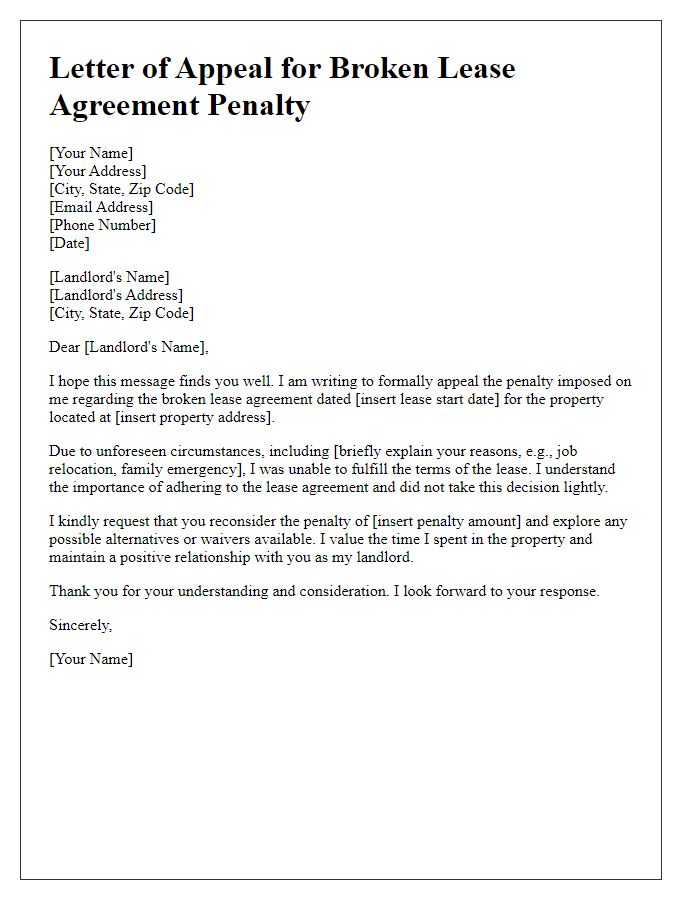
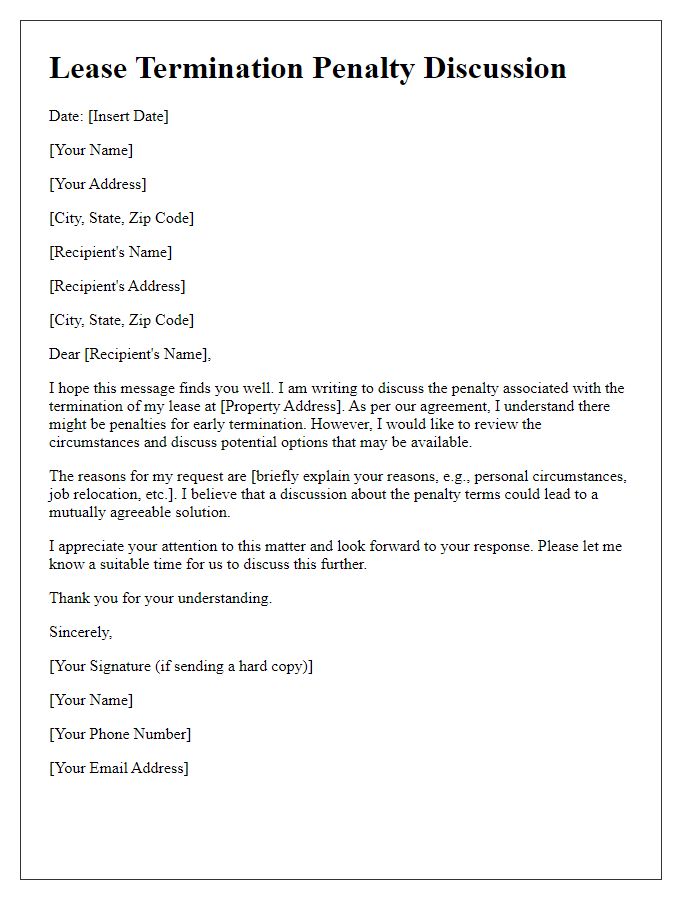
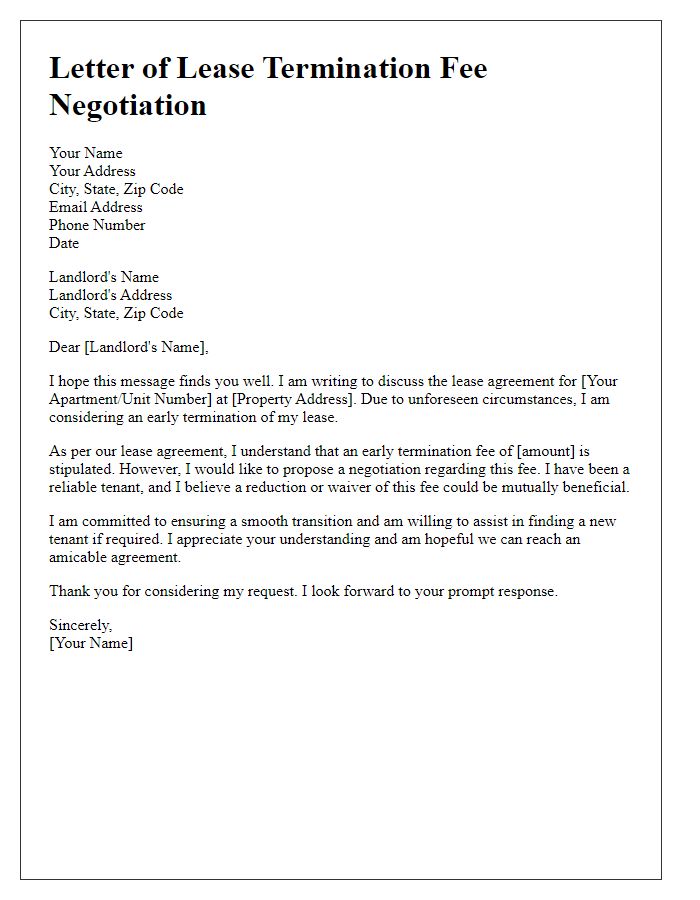
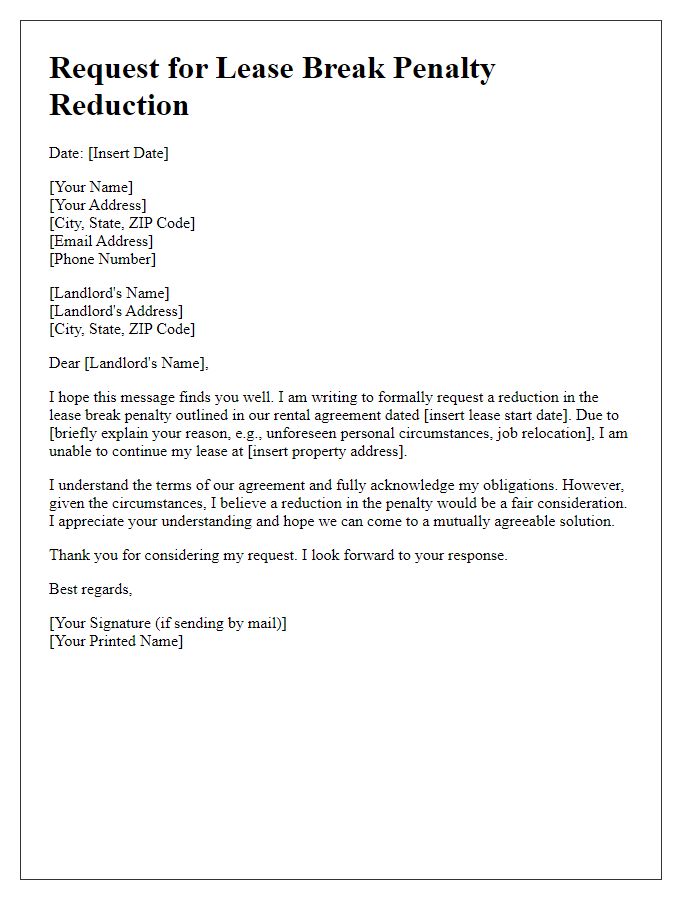
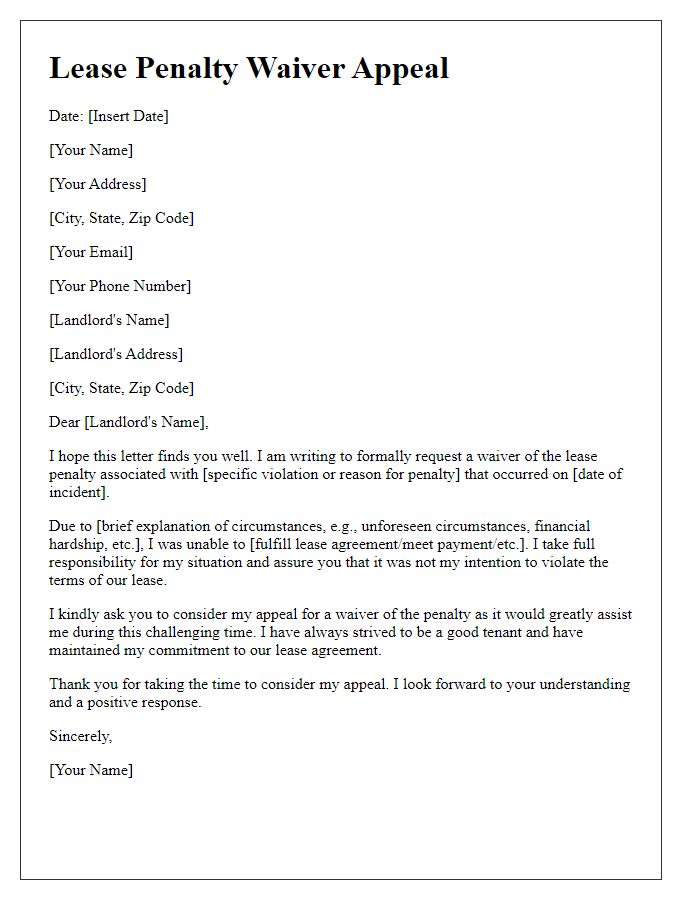
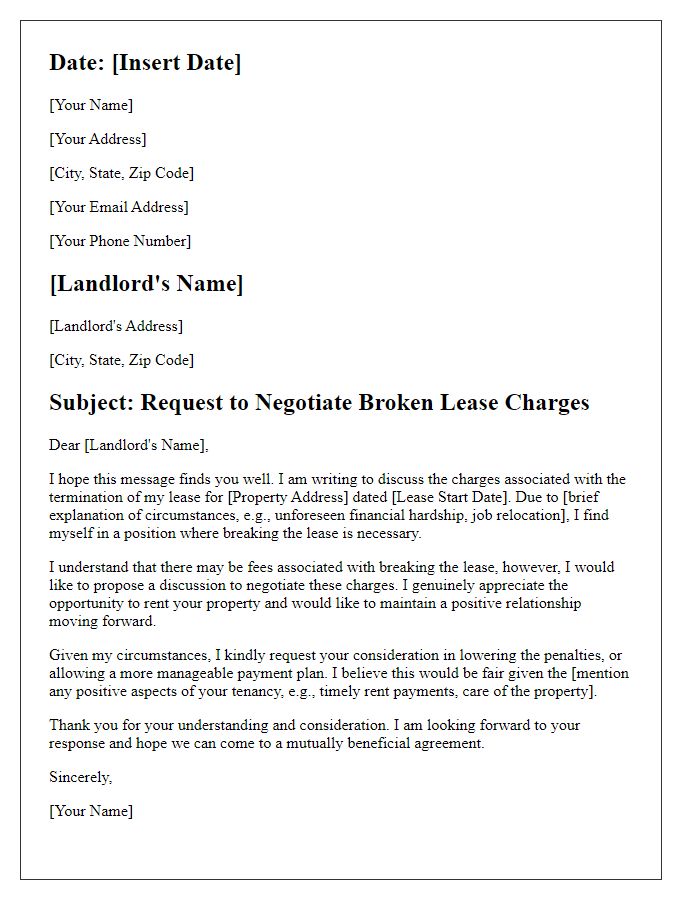
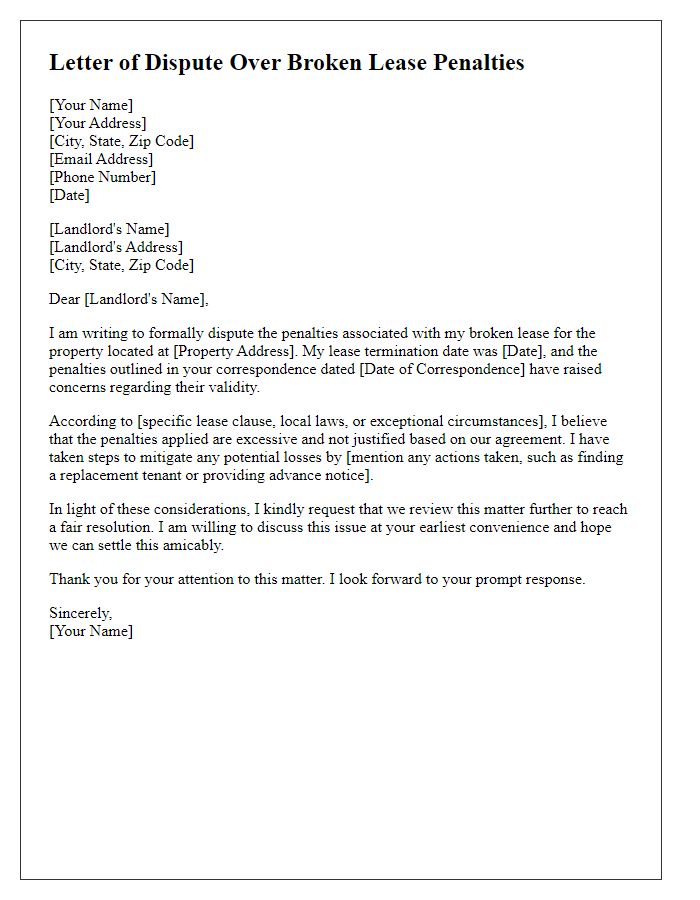
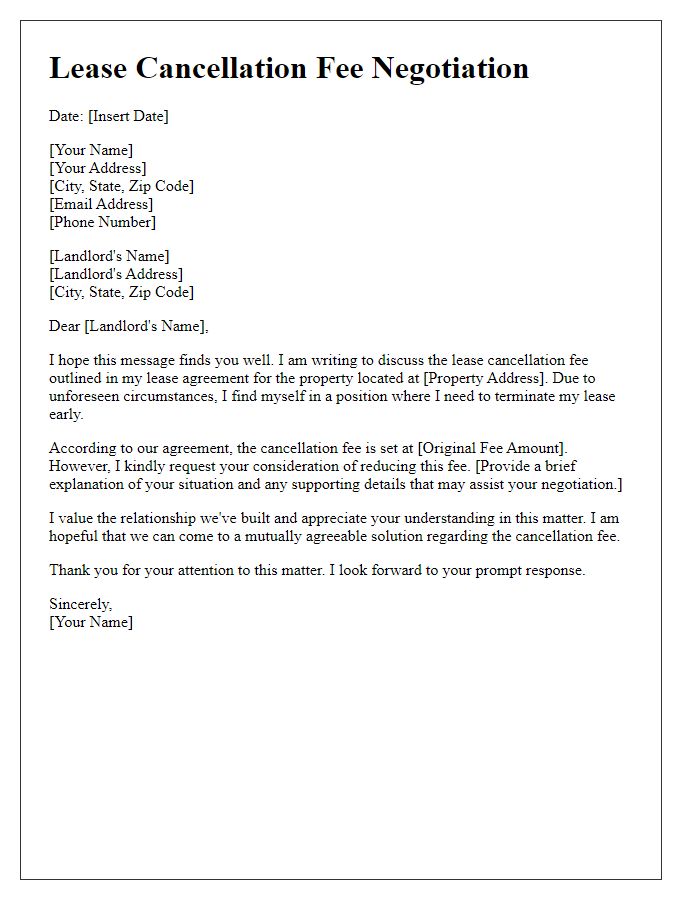
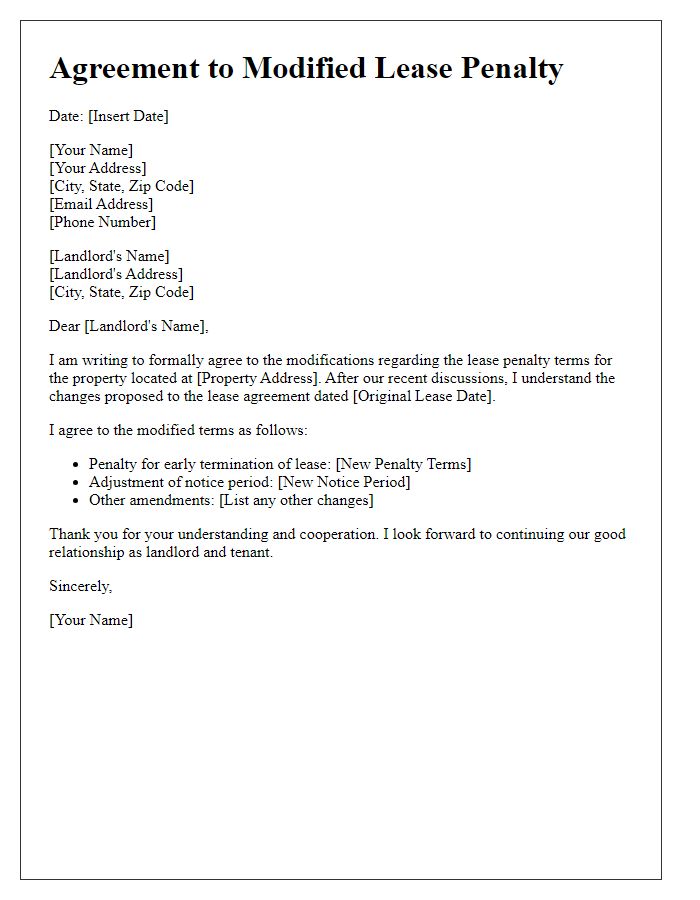
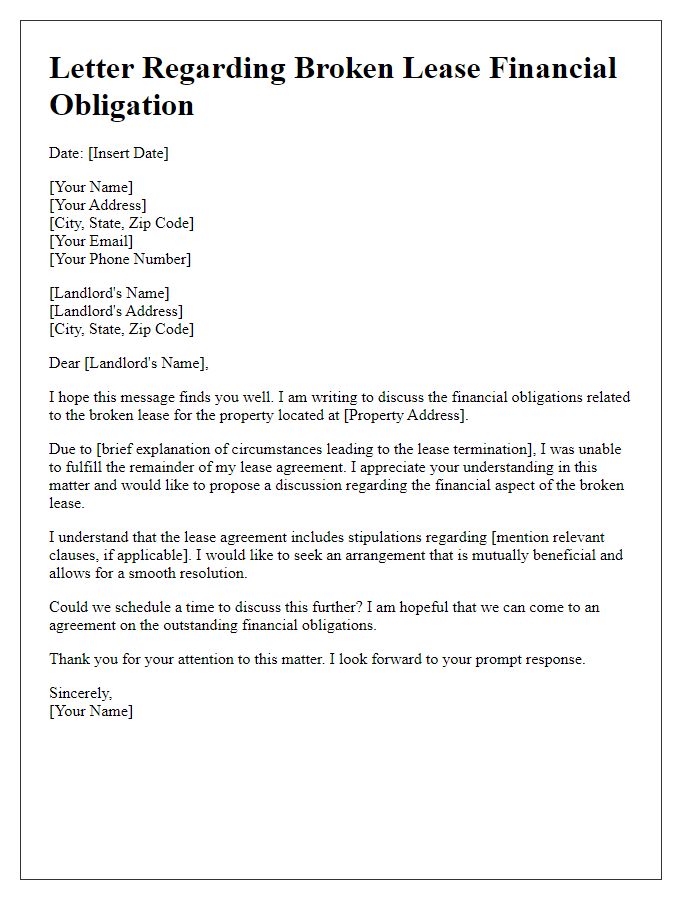


Comments